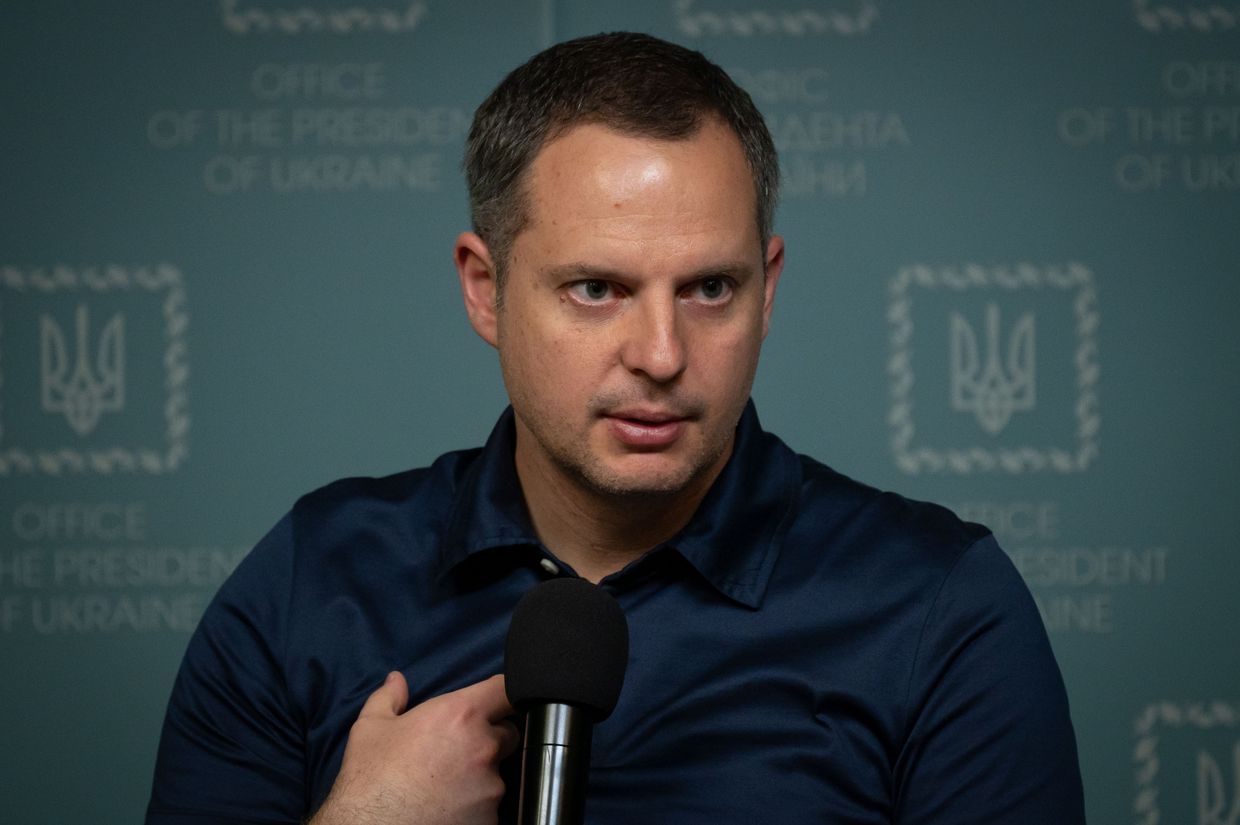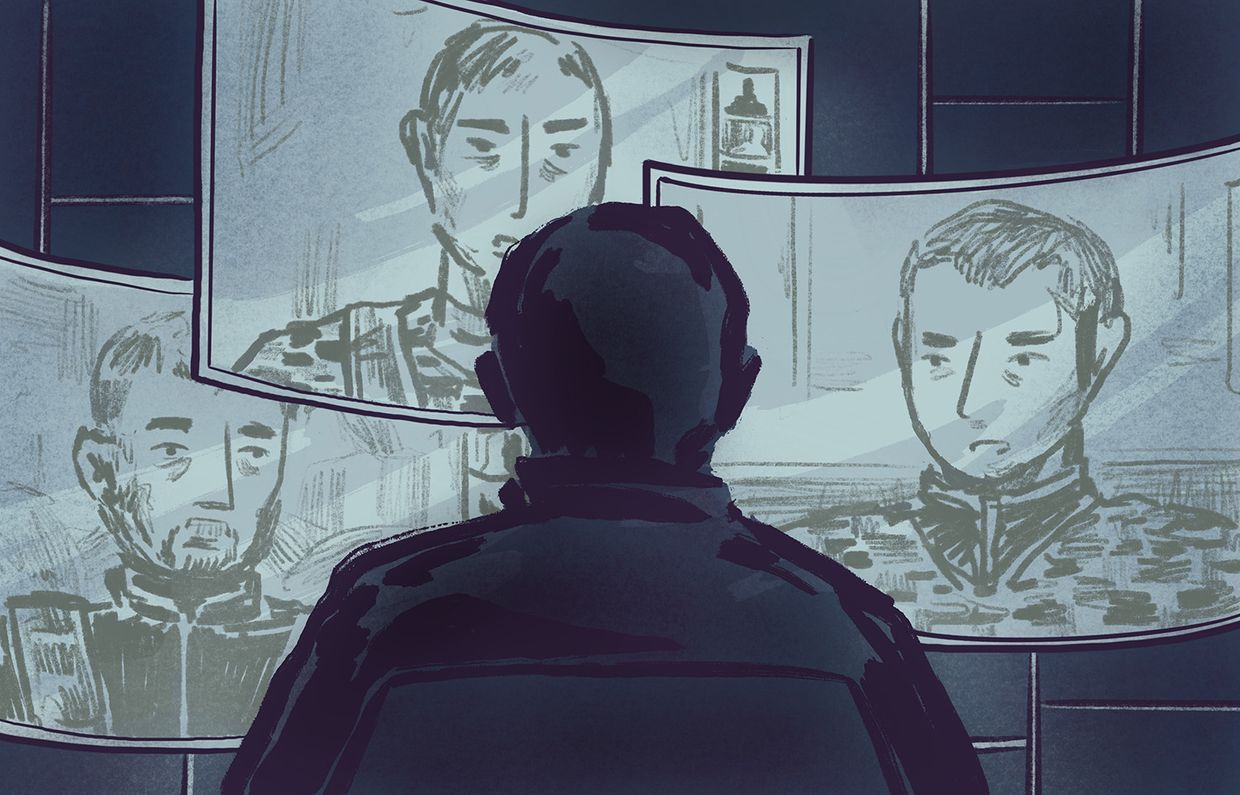Case against investment banker points to increasing pressure by state on business in Ukraine

Ukrainian investment banker and head of Kyiv-based Concorde Capital, Ihor Mazepa, was detained on Jan. 18 concerning a 2014 case against the businessman in which he allegedly illegally acquired land for a cookie-cutter housing development back in 2013.
Mazepa was detained by the State Bureau of Investigation (SBI) and the National Police at the border with Poland as he was making his way to the World Economic Forum in Davos, Switzerland, according to Mazepa's lawyers.
His brother, Yuriy Mazepa, was also detained, as well as two other individuals. Law enforcement officers also searched the premises of Concorde Capital in Kyiv.
“Ihor Mazepa denies all charges,” Anna Diakonova, head of public relations at Concorde Capital, said in a written comment to the Kyiv Independent.
The incident is just the latest in a string of what the business community in Ukraine says is systemic pressure from the state, including unannounced searches, asset seizure, and detentions. They say it has only increased since the start of the full-scale invasion and warn that the harassment of businesses drives potential investment away.
The trend has also led some in Ukraine to compare the pressure to the years of former President Viktor Yanukovych, Ukraine's infamously corrupt president who was ousted in 2014 following the Euromaidan Revolution. Others have pointed the blame squarely at officials in President Volodymyr Zelensky’s administration.
The CEO Club Ukraine community said it is “outraged by the illegal actions of SBI investigators against Ihor Mazepa” and called on law enforcement agencies to stop pressure on business.
“What remains to be seen is whether the system has gone to pieces, there is no longer any vertical of power and everyone is acting as if it were the last day and at their own discretion, or whether this is state policy,” wrote businessman and Manifesto 42 member Oleksandr Sokolovskyi.
Mazzepa was an outspoken critic of pressure on business. In May last year, he announced the creation of a register of law enforcement officers and judges who abuse their position.

In June last year, 42 entrepreneurs supported the initiative, publishing a manifesto defending Article 42 of the Constitution. The article says “everyone has the right to engage in legal entrepreneurial activity” and that the state “shall ensure the protection of competition and entrepreneurial activity.”
In November, the "Manifesto 42" group said that in the five months since President Volodymyr Zelensky ordered to address pressure on business by creating a single body for inspections things have only worsened.
The declaration cited data from the Prosecutor General's Office published in November 2023 that said that the share of criminal cases against businesses that law enforcement agencies initiate without ever being brought to court, as they often get thrown out, has reached a historic high of 77%.
Most of these cases are used to assert pressure on businesses and to engage in extortion or other corrupt activities, the manifesto says.
“Mazepa was one of the first businessmen who openly said that the pressure on business on behalf of different investigative bodies is too high,” lawmaker Yaroslav Zhelezniak from the Holos Party said in an interview with the Kyiv Independent.
“I think that his public position on this matter became one of the key reasons why the 2014 criminal case was revived,” he said.
Charges against Mazepa
Mazepa and his press service have called his detention an unfounded attack against his business.
"The searches were conducted without a court order, documents that were not related to the case but to all areas of Mazepa's business activity were taken, and personal belongings of employees working on other projects were seized," Concorde Capital’s press service said in a statement.
"We associate such actions of the SBI with the position of Ihor Mazepa regarding the pressure of security forces on business.”
According to law enforcement officers, Mazepa allegedly organized a scheme to illegally seize land on which hydraulic structures of the state-owned Kyiv hydropower plant are located.

The Prosecutor General's Office also said that the businessman, his brother, and other people involved in the scheme used corrupt connections in government agencies to illegally seize a seven-hectare plot worth more than Hr 20 million ($530,000).
Meanwhile, according to Concorde Capital, the criminal case, initiated in 2014, concerns the allocation of land plots with a total area of 2.4 hectares.
“I did not allocate any state land to anyone. I have not received an answer to the question of whether those who allocated it have been detained," Mazepa said in a Facebook post on Jan. 19.
“Prosecutors are asking for a bail of Hr 700 million ($18.6 million) as a preventive measure for me. Not Hr 700, not Hr 700 thousand, but Hr 700 million. And another Hr 500 million ($13.3 million) for my brother. That is, at least Hr 1.2 billion ($32 million) for a case where the alleged losses amount to 7 million ($186,000),” the businessman wrote.

The case is based on project documentation that was developed in the 1960s, Mazepa told journalists during a break in a court session on Jan. 19. He said there were three dozen rulings of three agencies that it was perfectly legal to build real estate on these plots.
"This case is 10 years old, but it has started to move in the last 1.5 months. Some of our neighbors in these areas have been in pre-trial detention since November in a similar case," Mazepa said.
According to lawyers, he is being charged with the creation of a criminal organization.
Mazepa was remanded in custody on Jan. 19 until Feb. 28 with the possibility of bail of Hr 349 million ($9.3 million)
Signs of pressure
Diakonova, head of public relations at Concorde Captail, listed to the Kyiv Independent the reasons that point to the lack of grounds for Mazepa’s detention.
First, other similar plots have been freely purchased and sold for a long time.
Second, the criminal proceedings are being conducted by the State Bureau of Investigation, which should investigate wrongdoings by public officials. “But no official has been served with a notice of suspicion (in this case),” she said.
Third, all the necessary permits were obtained during the allocation of land plots.
Dmytro Oliinyk, one of Manifesto 42's initiators and the head of the Federation of Employers of Ukraine, said that the case against Mazepa is a manifestation of pressure on business, but “we don’t know yet who is doing this and what is the reason.”
He noted that “this arbitrariness is not helping the investment climate in Ukraine” and said several business groups were going to address President Zelensky and the parliament to stress the need for changes to the Criminal Procedure Code.

“It is clearly pressure on business with obvious political content,” Zhelezniak told the Kyiv Independent.
Zhelezniak was clear that he thinks the pressure is coming from two deputy heads of President Zelensky’s office: Rostyslav Shurma, who is in charge of economic matters, and Oleh Tatarov, who deals with law enforcement.
They both “block the relaunch of the Financial Investigations Service,” he said.
“Over the past year, I have seen a clear trend of law enforcement arbitrariness towards business,” the MP said.
“If this trend does not change, I am afraid that in some time our business climate will be at the level of 2012-2013,” when Yanukovych was president, he added.
Ukraine’s business ombudsman Roman Waschuk told the Kyiv Independent that while not all the details of the case are fully clear, he wonders “whether it makes sense for a country of war to have as a priority the arrest of people in 10, 11-year-old cases that suddenly become very urgent.”
“That raises real questions about whether due process is being applied here.”
Waschuk said his council has seen a range of cases against Ukrainian businesses where land acquisitions have been a problem.
Pattern of pressure
In another recent similar case, the Kyiv-based rubber goods producer Kyivhuma had its offices searched on Jan. 4 over its alleged tactical medical equipment supplies to Russia.
The Security Service of Ukraine (SBU) said at the time that it had exposed "one of the largest rubber and plastic producers in Ukraine" based in Kyiv Oblast “for shipping tactical harnesses and bandages to Russia.”
The SBU later told Interfax-Ukraine that one of Kyivhuma’s founders had been detained for 60 days without bail.
The company denied the accusations, saying that since the start of Russia’s full-scale invasion, it had “completely stopped cooperation with the aggressor country,” adding that its products may have ended up in Russia through its customers reselling them. It also said its products are not military grade.
Ostrohrud told Forbes Ukraine that he believes competitors may be behind the allegations and are trying to push Kyivhuma out of the market by making it toxic to work with.
Another widely reported case concerned Lviv restaurant group !Fest, which owns dozens of popular bars and restaurants in Ukraine.
In late October 2023, armed employees of Ukraine’s Financial Investigations Service, known by its Ukrainian acronym BEB, showed up at the doors of the !Fest restaurant group’s office in Lviv, blocking its entrance to the company’s employees.
The company vehemently denied the accusations, taking to social media to condemn the visit as a raid by the state.
“As long as the state assaults entrepreneurs with weapons rather than protecting them, we are not a country for civilized investors,” Yurko Nazaruk, co-owner of the restaurant group, wrote on Facebook during the search.









